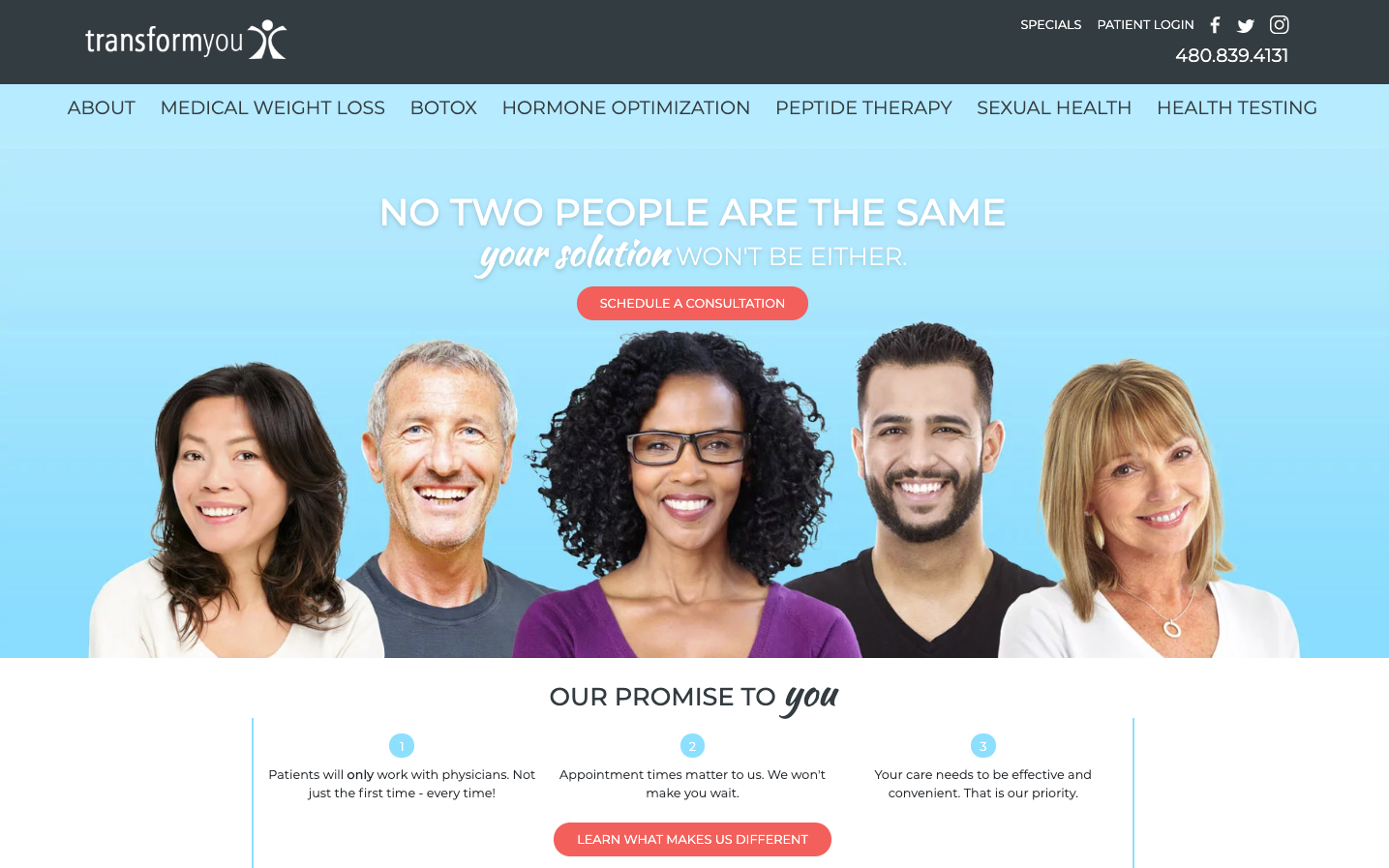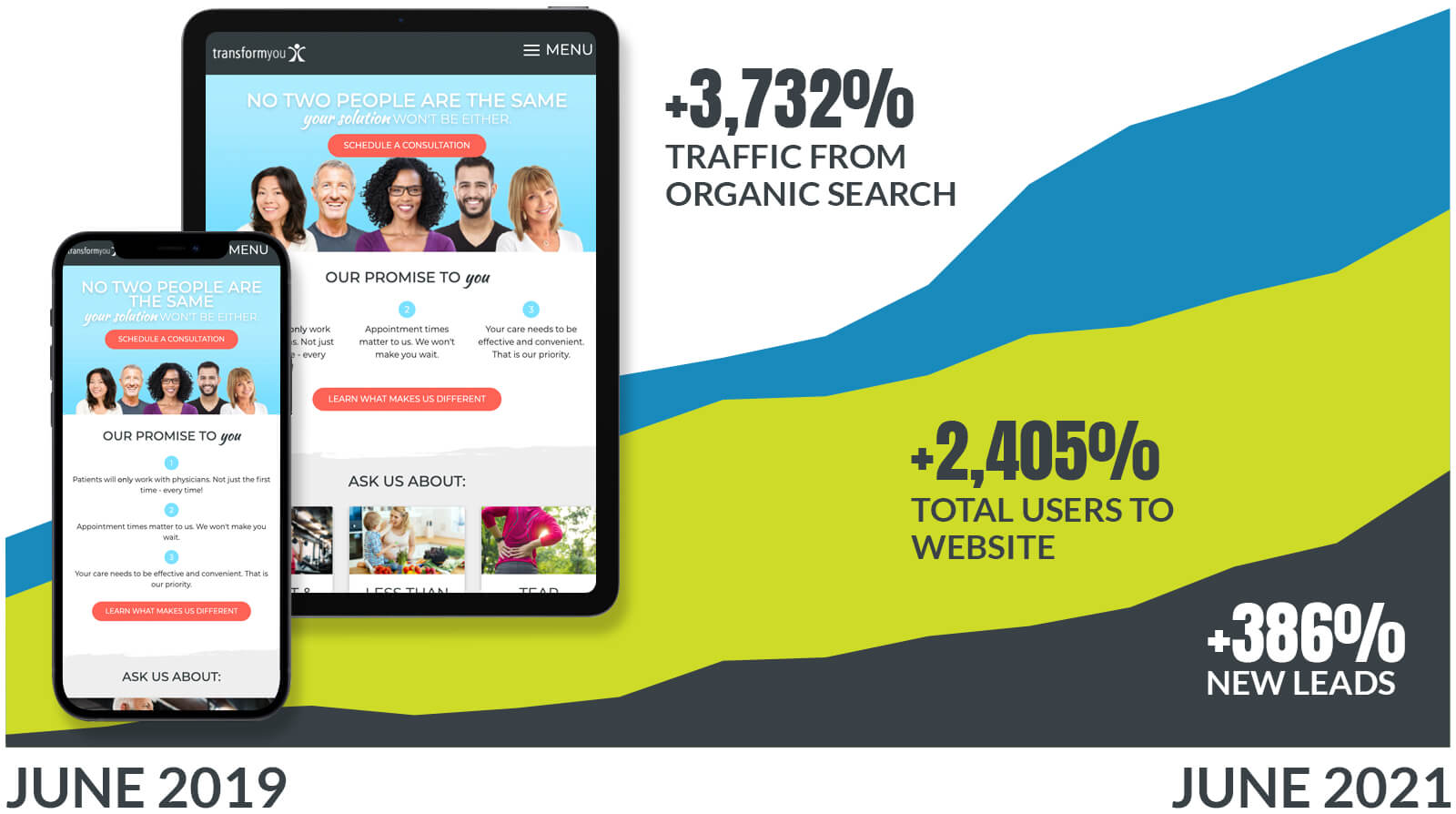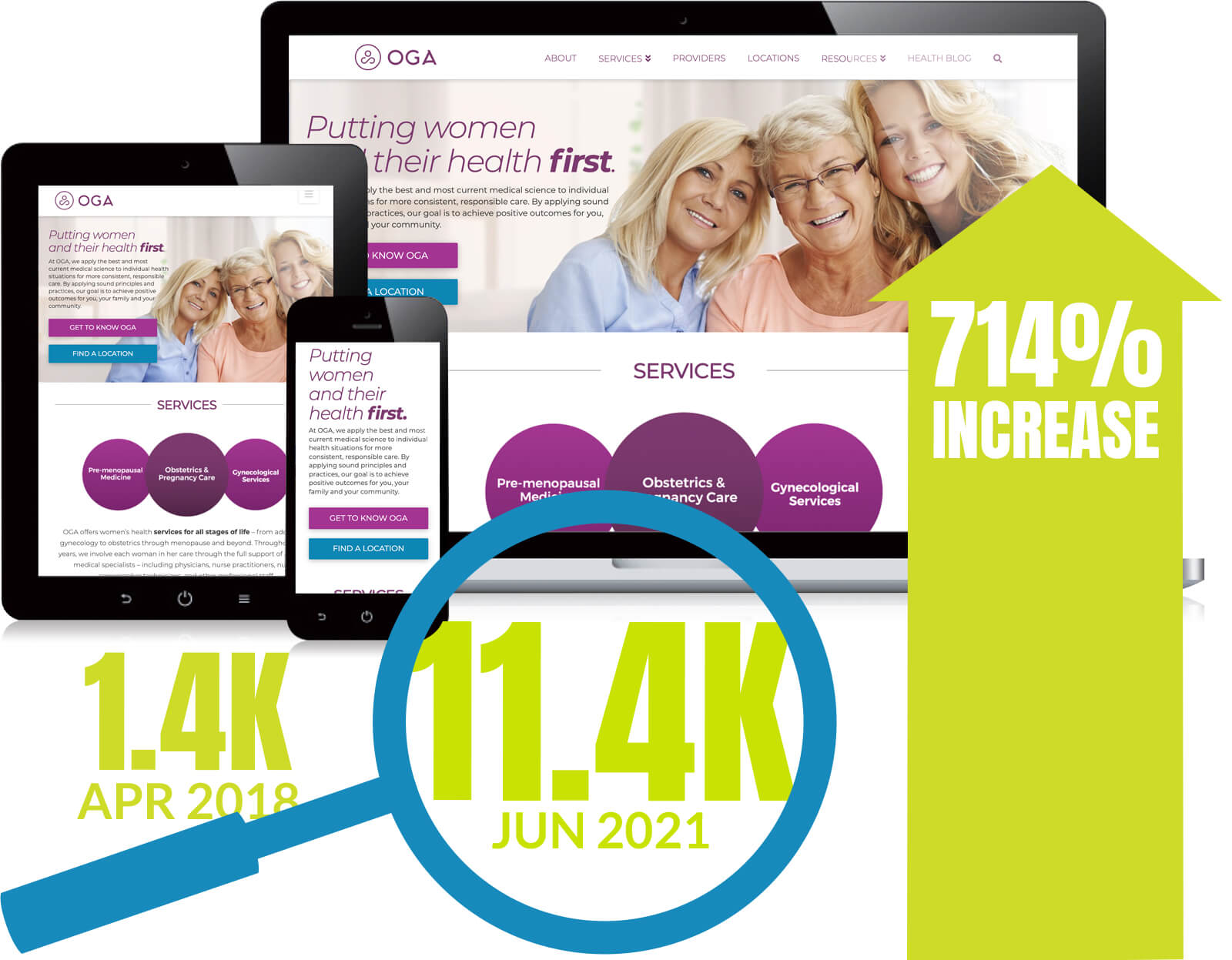transformyou is a health and wellness practice based out of Tempe, Arizona. They offer medical weight loss services, botox, hormone optimization, peptide therapy, sexual health services, and health testing for patients in Arizona and beyond.
Inbound Marketing Blog
I don't know who needs to hear this, but it's time to stop having your interns, admins, and legal assistants also be responsible for your online marketing strategy. While your support staff is surely there to help with important aspects of the business (including marketing), the time they're spending creating social media posts and managing your Google PPC ads is taking away time that could be better served assisting with intake, research, and other important aspects of client work to assist your attorneys.
It's time to outsource your online lead generation and hire a digital marketing company that can strategically build your pipeline with ideal cases.
There's a reason SEO can't be a one-and-done marketing strategy. The tactics are constantly changing, as is what is acceptable according to Google and other search engines. If you aren't up-to-date on your website's SEO and best practices, you risk being penalized and losing out on valuable organic traffic to your website. Consequently, that also means missing out on leads.
Once, I was sitting in on a marketing class, listening to a professor give a lecture on social media and the impact it has on society and the business world. About 40 minutes into the lecture, an older student raised his hand and said, "Everyone knows that social media is just for millennials. How can it possibly be useful for businesses?"
The professor, who was in his early 60s, replied, "Is it? Then why do I have ads popping up on my news feed targeted at old balding men like me?"
In the Spring of 2018, the general manager of a local women's health clinic with three locations in the Treasure Valley (focused on obstetrics & pregnancy care, gynecology, and pre-menopausal medicine) reached out to our team at Tribute Media. He had been sitting in on meetings with the organization’s board of trustees where it was becoming more and more apparent in conversations that they weren’t staying competitive in their industry and needed to gain more traction finding new patients online.
Just having a website on the internet is no longer enough to be found online. All industries are experiencing that reality and are recognizing the need to have more of an active approach to their online presence. Healthcare companies are no exception!
Sure your website may have a lot of traffic coming from patients attempting to access their online portal or to find their provider's contact information, but that's not the kind of traffic that brings in new business. Providing a good user experience and online presence that works for current patients is a basic necessity. But good user experience and online presence that also captures the interest and business of potential patients can be revolutionary!
Welcome to our May edition of the Social Media Snapshot! Every month we try to catch you up with a brief overview of what's been happening in the social media world as it pertains to businesses. This month, we're taking a look at new social media monetization options and social media platform updates that happened in May.
According to HubSpot's 2020 "Not Another State of Marketing Report", Facebook Ads produce the greatest ROI over Google Paid Search and Instagram for more than one in three marketers. In 2020, over three million businesses utilized Facebook ads, but you can bet that many struggled to get their ads approved.

![How Does Blogging Help SEO? [& How to Do It Right]](https://www.tributemedia.com/hubfs/2017%20Blog%20images/SEO.jpg)





.jpeg)



